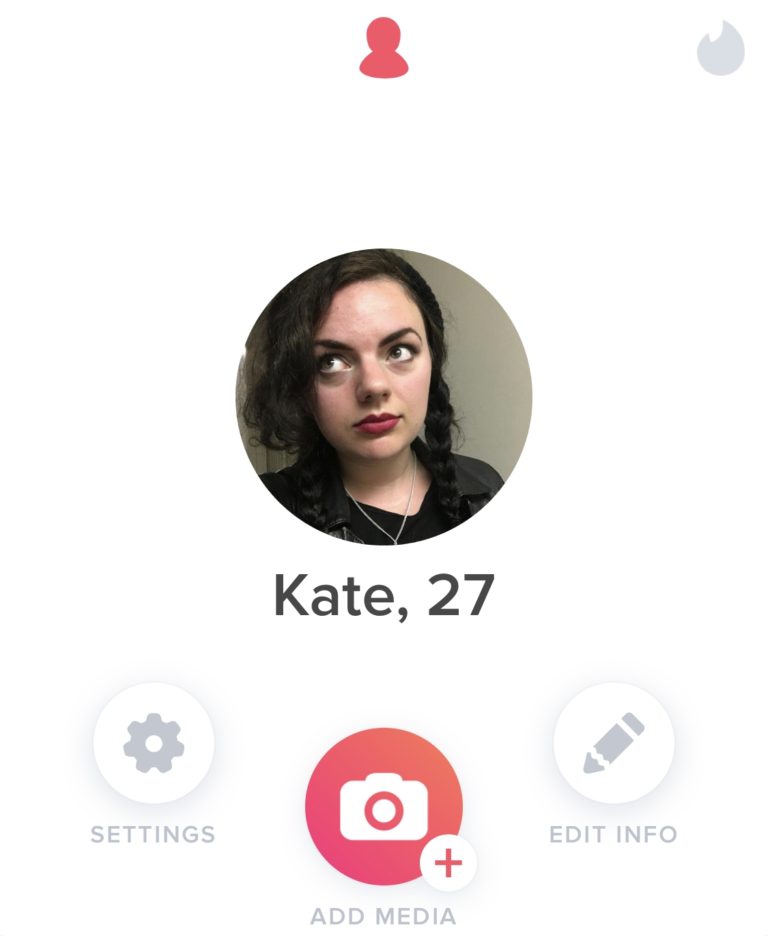
For as much as I talk about dating sites and the hours of amusement they’ve brought me, I don’t actually think they’re that great. They’re too often full of creeps and trolls, seeking to offend and harass more than they’re seeking actual dates or hookups. The situation is dire. Even at times when I’ve been highly motivated to find dates and/or sex on these sites, sometimes I felt cockblocked by my insidious fears about getting catfished or doxxed – or worse, assaulted on a date. It doesn’t have to be this way!
Since so many dating sites and apps are subpar in this area, I’ve put together these 10 suggestions for how these companies can make their services safer and more appealing for women. (A lot of this applies to people other than women as well – anyone vulnerable and/or marginalized, potentially – but I’m a woman so that’s the perspective I’m coming from.) I wish more sites would take these ideas into account!
Comprehensive blocking. I’ve yelled about this before, but… please, please, Hookup Websites, give us a decent blocking feature. You should be able to block someone before you match with them, not just once you’ve already matched (*cough* fuck you Tinder), and once you’ve blocked someone, they should be unable to see any aspect of your profile ever again. This isn’t even that difficult to implement and would make lots of people feel much safer.
A reporting feature that works. If someone is sending unsolicited dick pics, or misogynist screeds, or using pick-up artist tactics, or (god forbid) attacking people on dates, there should be an option to report them on the app or website and have them investigated by a human person (not a robot!) from the platform. If need be, their profile should be pulled. Letting creeps run wild on your site is a surefire way to make women nervous about using it.
Functional filtering. Beyond just making it easier to find compatible dates, this feature can also prevent a lot of scary or annoying situations. I simply don’t want non-feminists to be able to view my profile, let alone interact with me. I’m not saying everyone who rejects the feminist label is dangerous, but certainly in many cases their ideologies are (who the fuck doesn’t want gender equality in this day and age?!), so I just want them gone from my digital life. Nip that “friendly debate” about my personhood in the bud. Byeee.
Identity verification. Okay, this is a controversial one, because some people are understandably skittish about having to upload their ID to a dating site. Some folks even get angry when asked to do so. But I think, provided the data was kept private and managed responsibly (i.e. maybe deleted altogether after verification was complete), it would be worthwhile to make sure people actually are who they’re claiming to be. The internet makes it all too easy to catfish folks, and that’s not cool. Plus I think people would behave better on a platform if they knew it had all their info on file.
Vouching. If you’ve had a good date with someone, maybe you could leave them feedback in the form of a review, like on Yelp, or a rating, like on Uber. Of course, this feature is somewhat objectifying and would likely be abused – I can imagine shitty men leaving bad feedback for women who didn’t “put out” after their date bought them dinner, for example – but it could be useful for shunning creeps.
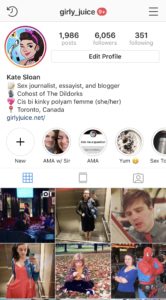 Taking privacy seriously. I had no idea, for example, when I linked my Instagram account with my Tinder account, that matches and even non-matches would be able to click through to my IG profile and thus immediately learn everything about me; I thought this feature would just show my pictures on my profile. Some dating apps use geolocation, some force you to disclose your school or your workplace, some make you use your real name… All of these “features” are problematic because they put you at risk if someone decides to track you down. Let users decide how much they want to disclose!
Taking privacy seriously. I had no idea, for example, when I linked my Instagram account with my Tinder account, that matches and even non-matches would be able to click through to my IG profile and thus immediately learn everything about me; I thought this feature would just show my pictures on my profile. Some dating apps use geolocation, some force you to disclose your school or your workplace, some make you use your real name… All of these “features” are problematic because they put you at risk if someone decides to track you down. Let users decide how much they want to disclose!
Gender self-identification tools. I hear lots of different things from my trans, non-binary, and genderqueer friends about how they wish gender worked on dating sites. However, the common thread seems to be that they wish there were more options rather than less, even if they wouldn’t actually use the options provided. Not every trans woman will feel comfortable disclosing on her profile that she’s trans, for example (especially since doing so often brings on harassment and even violence), but some trans folks prefer to air that stuff upfront so they don’t have to deal with it later. Dating sites should allow for this. In doing so, they’ll also normalize gender disclosure for everyone, not just trans people.
Tools for setting expectations. Many dating sites already have this – but many don’t, and it’s weird! You should always be able to indicate whether you’re looking for something casual, something more serious, either, or something in between. This can help prevent some of the tension that arises when you go on a date with someone whose dating goals end up being different from yours.
Clear community guidelines. I’d rather they be too harsh than too lenient. No unsolicited sexual media, no pick-up tactics, no racism, no sexism, no homophobia, no transphobia, that kind of thing. Setting these boundaries clearly and publicly, and standing by them, would make a company seem more trustworthy to me, and thus more worthy of my patronage.
Investment in sexual health and anti-sexual violence causes. Okay, this one’s more abstract and indirect. But I would definitely trust a hookup platform more if it had made tangible monetary contributions to these causes. Being publicly sex-positive and feminist isn’t just a marketing tactic; it helps establish a culture on the site, and shows abusers and misogynists that they’re not welcome.
What safety features do you wish more dating sites had?
This post was sponsored. As always, all writing and opinions are my own.


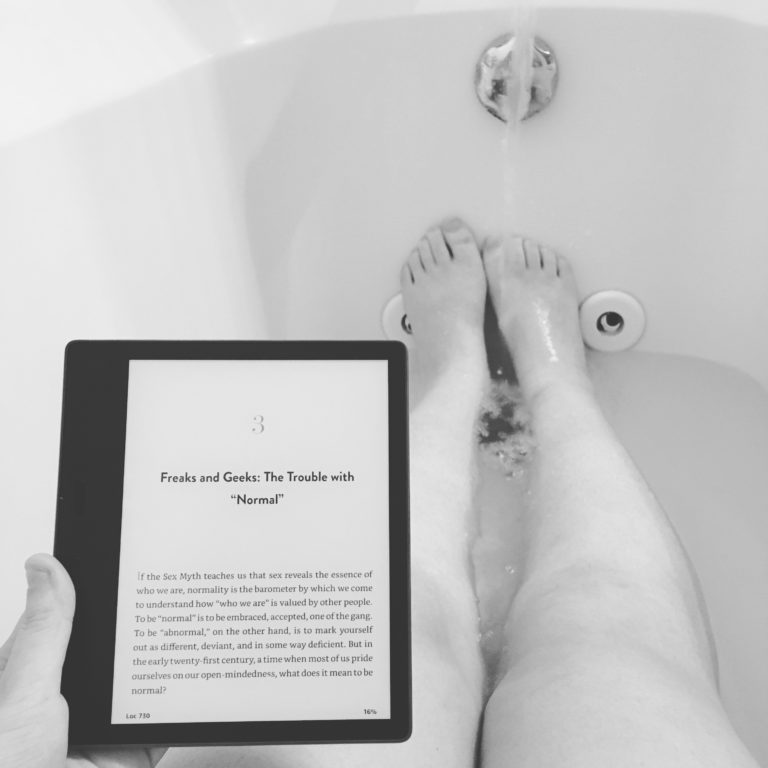

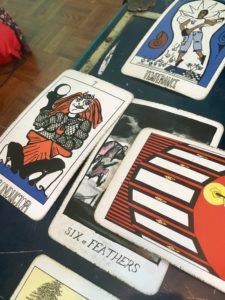 Listen to your body. Trust your body. Let your brain take a backseat. This message came up in multiple cards. It’s something I frequently struggle with, as an anxious weirdo who over-intellectualizes and over-analyzes sex. Sometimes my body really does know best, and that’s hard to accept; I want to be able to conquer all problems with sheer brainpower! But my body is at least as smart as my brain, and I need to let it do its thing.
Listen to your body. Trust your body. Let your brain take a backseat. This message came up in multiple cards. It’s something I frequently struggle with, as an anxious weirdo who over-intellectualizes and over-analyzes sex. Sometimes my body really does know best, and that’s hard to accept; I want to be able to conquer all problems with sheer brainpower! But my body is at least as smart as my brain, and I need to let it do its thing.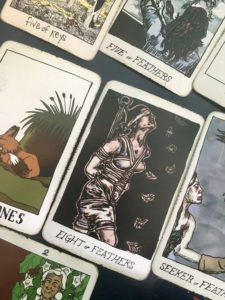 Say what you mean, and mean what you say. One of the cards Carly pulled for me this time, the Seeker of Feathers, also came up in
Say what you mean, and mean what you say. One of the cards Carly pulled for me this time, the Seeker of Feathers, also came up in 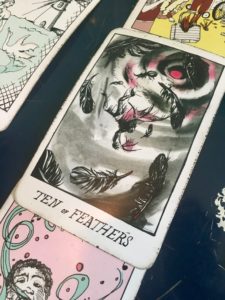 Consider your intentions. One of the cards Carly drew – the Ten of Feathers – was meant to represent how others observe or interpret me, and it indicated a fall. Chaos. Mental health struggles, addiction, loneliness, fears.
Consider your intentions. One of the cards Carly drew – the Ten of Feathers – was meant to represent how others observe or interpret me, and it indicated a fall. Chaos. Mental health struggles, addiction, loneliness, fears.